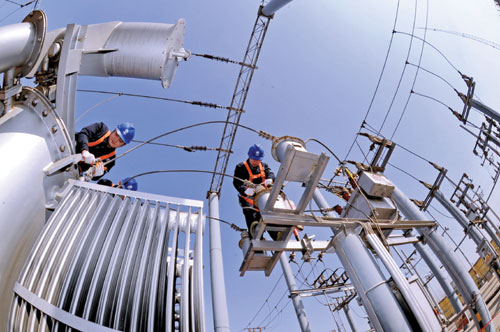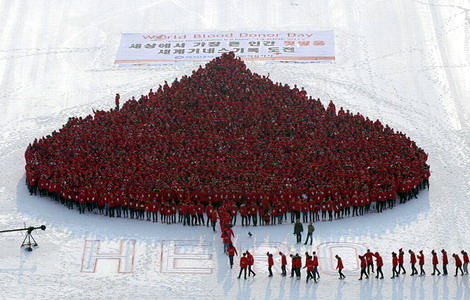Shortages of electricity set to persist this year
Updated: 2012-02-24 09:42
By Zheng Yangpeng (China Daily)
|
|||||||||||
BEIJING - China might face the same level of electricity shortages this year as in 2011, even though demand is unlikely to grow as rapidly as it did last year, a senior industry official told China Daily on Thursday.
|
 |
|
Workers maintaining the power grid in Julu county, Hebei province. The China Electricity Council said the country would have power shortages this year. Yang Shiyao / Xinhua |
Drought-induced shortfalls in hydropower and higher coal prices that could undercut thermal power generators' incentive to provide more electricity will cause the gap, the official said.
"This year's economic growth slowdown is estimated to push the power demand increase rate down to 9.5 percent, from last year's 11.5 percent," Wang Zhixuan, secretary-general of the China Electricity Council, said.
The council is an industry organization representing all of China's power enterprises.
"But that slowdown in demand growth might be offset by hydropower supply woes," Wang said.
Last year, drought caused the most severe hydropower supply shortage in six decades. Meanwhile, electricity demand soared as a result of economic growth.
Those conditions combined to create a major power shortage, which increased as much as 3 million kilowatts at peak periods.
Hydropower contributed 21.8 percent of the total power supply in 2011, according to data released by the CEC at this year's Clean Energy Expo.
Another ongoing issue for the power sector is coal prices. Coal-fired plants have been under great pressure as fuel prices have soared while government-set electricity prices haven't risen in tandem.
High coal prices have removed incentives for power companies to expand capacity. According to the Xinhua News Agency, the average cost of coal-fired generation is 0.5 yuan (8 US cents) a kilowatt-hour, while electricity is sold for just 0.4219 yuan.
Last year, the government adjusted power prices twice. The second change, at the end of 2011, lifted the rate for non-residential users by an average of 0.03 yuan a kWh.
Wang said the adjustment eased generators' pressure, but possible coal price hikes remained a major threat.
"If the downtrend in coal prices isn't sustained, or if prices even rise, the small adjustment in electricity rates can be easily cancelled out," he said. "The price issue is expected to be a long-term problem."
Coal-fired power accounts for more than 70 percent of China's electricity supply.
Related Stories
Solar powers brighter future for nomadic children 2011-10-03 15:57
SAIC, GM tie up in electric car venture 2011-09-21 07:48
Power runs short in the south 2011-08-29 16:54
Nuclear crisis energizes grid, wind power efforts 2011-04-12 08:00
- China has 'chance' to open capital account
- CSRC to curb irrational speculation
- Housewives spend more in 2011
- Search for oil, gas set to expand
- Michael Jordan sues Chinese company Qiaodan
- China sees $3.1b 'hot money' outflow in 2011
- China to raise health insurance subsidies
- Chinese movies have little int'l influence









